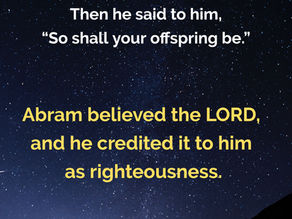Acts 16:13-15 - Open Heart (Mind) Surgery
- Chad Werkhoven
- Sep 3, 2025
- 4 min read
It's the Lord who opens your heart, but you must respond.
Acts 16:13-15 (NIV)
CONTEXT: This week we're working through selections from the book of Acts looking at examples of how God's grace is stronger than we are, and how it is that He produces both our will to believe and our very faith itself.
In today's passage, Paul and his companions have just arrived in Philippi,.
13 On the Sabbath we went outside the city gate to the river, where we expected to find a place of prayer. We sat down and began to speak to the women who had gathered there. 14 One of those listening was a woman from the city of Thyatira named Lydia, a dealer in purple cloth. She was a worshiper of God. The Lord opened her heart to respond to Paul’s message. 15 When she and the members of her household were baptized, she invited us to her home. “If you consider me a believer in the Lord,” she said, “come and stay at my house.” And she persuaded us.
Canons of Dordt
Point 4 - Irresistible Grace
Article 13 & 14: The Incomprehensible Way of Regeneration and the Way God Gives Faith
In this life believers cannot fully understand the way this regeneration occurs;
meanwhile, they rest content with knowing and experiencing that,
by this grace of God,
they do believe with the heart and love their Savior.
In this way, therefore, faith is a gift of God,
not in the sense that it is offered by God for people to choose,
but that it is in actual fact bestowed on them,
breathed and infused into them.
Nor is it a gift in the sense that God bestows only the potential to believe, but then awaits assent—the act of believing—by human choice;
rather, it is a gift in the sense that God who works both willing and acting
and, indeed, works all things in all people and produces in them both the will to believe and the belief itself.
Summary
One of Luke's - the historian and fellow evangelist who wrote both the account of Jesus' life as well as the book of Acts - characteristics is his ability to convey lots of information using a small amount of words. He often throws in seemingly unsignificant details that end up adding deep insight to the story (conversely, when Luke doesn't include details, it's a big clue that that those things are not critical to understanding the story, even though we might be really curious about them).
So when Luke mentions that they had to go outside of the city on the Sabbath to find people who worshipped God, and that the people who had gathered down by the river to pray were women, it tells us quite a bit about the spiritual condition of the Jewish people in Philippi.
Synagogues could be formed wherever there were at least ten faithful men, so the fact that these women were meeting alone in the open air tells us that the Jewish men of Philippi, a large and prosperous city in which there would have been more than enough men to warrant having several synagogues, had by and large abdicated their faith and calling from God to be the spiritual leaders of their home and community. Such lazy behavior by men has plagued the Church for its entire existence.
Next, Luke keys in on a particular woman, sharing all sorts of details about her: where she was from, her name, and her occupation. From these details we can deduce that Lydia was likely a free woman (in a world where most people were enslaved) and that as a dealer of purple cloth, she was probably quite wealthy. In her faithfulness, she would go on to be a key patron and benefactor to the Church for years to come.
Dig Deeper
Of course we didn't come to this passage today just for a lesson in ancient Philippian history. We came because of the interesting way that Luke describes how it is Lydia came to place her faith in Christ. Each clause of this short sentence is worth digging into:
The Lord opened her heart... - Of course Luke doesn't literally mean that God performed open heart surgery here! As one lexicon defines the idiom used here, Luke means that the Lord - a title most often given to Christ, but one that doesn't necessarily exclude the Holy Spirit - "caused someone to be willing to learn and evaluate fairly."
...to respond... - When the Holy Spirit breaths and infuses faith into people, it's not as if He turns people into mindless drones who no longer have agency over their will or can exercise any independent self determination; The Lord had opened her heart, but Lydia still needed to respond to Him on her own. Yet at the same time, it's not as if the Spirit simply granted her the potential to believe, but then awaited her assent. Rather, He produced in her both the will to believe and the belief itself. In other words, having had her mind opened and freed of sin's noetic effect, the grace offered to Lydia became irresistible, and she responded.
...to Paul's message. - It wasn't a carefully crafted and beautifully performed worship song that Lydia responded to, or a warm, fuzzy feeling that God would help her through whatever personal challenges she was facing, or the loving relationships she'd have with other Christians. She responded to the words Paul preached - the gospel message: Jesus Christ, who died for our sins, is now raised from the dead (2 Timothy 2:8).
ACKNOWLEDGE WHO GOD IS: Our Father, who gathers His people from all sorts of different backgrounds;
ALIGN YOUR LIFE WITH GOD'S WILL: Pray that you would respond to the gospel message all through your life, as Lydia did;
ASK GOD FOR WHAT YOU NEED:
Read the New Testament in a year! Today: 2 Corinthians 9




















Comments